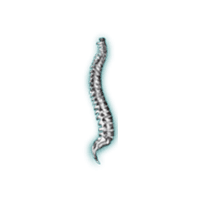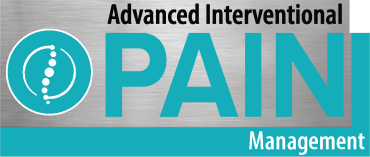
Advanced Interventional Pain Management
Interventional Pain Management Specialists located in Hot Springs, AR & Little Rock, AR
As many as 40% of people in the United States can expect to develop sciatica-related pain and other symptoms at some point in life. When sciatica symptoms become severe, you can find solutions at Advanced Interventional Pain Management. At the offices in Hot Springs, Little Rock, Texarkana, El Dorado, Arkadelphia, and Mena, Arkansas, pain management specialists Jacob Abraham, MD, and Ryan Stuckey, MD, provide minimally invasive treatment options to reduce pressure on your nerve and restore your spine health. Learn more about sciatica treatments by calling the Advanced Interventional Pain Management office nearest you, or request an appointment online today.
Sciatica Q & A
What is sciatica?
In your lumbar (lower) spine is the sciatic nerve, the large nerve that travels down into your hips and legs, providing sensations to these areas. Sciatica isn’t a condition, but rather a description of pain and other symptoms that develop due to sciatic nerve compression.
When a herniated disc, bone spur, or surrounding tissues put pressure on this nerve, you experience episodes of shock-like pain that can be severe enough to affect your mobility and quality of life.
Your risk for sciatica increases as you get older, if you work in a physically demanding job, or if you experience trauma to your lower spine.
What are the symptoms of sciatica?
Stabbing pain is a hallmark symptom of sciatica. You may feel this jolting pain when you move in certain ways. Other symptoms common with sciatica include numbness, weakness, and tingling that start in your lower back and radiate down into your hips, legs, and feet.
When your sciatica pain and other symptoms become chronic and severe enough to interfere with your ability to work and stay physically active, you should schedule a diagnostic evaluation at Advanced Interventional Pain Management.
How is sciatica treated?
After confirming your sciatica diagnosis through X-rays and a physical exam, Dr. Abraham or Dr. Stuckey customizes a treatment plan to relieve pressure on your sciatic nerve. Treatment initially may involve anti-inflammatory medications and pain relievers to keep you comfortable.
Exercise and physical therapy can stretch your lower spine and naturally reduce nerve pressure. However, if chronic pain is stopping you from being physically active, your doctor may recommend steroid injections that deliver anti-inflammatory medicine directly into your sciatic nerve.
Nerve blocks are another treatment option for sciatica. This involves injections of anesthetic medications into the sciatic nerve to numb the area and lessen the severity of your pain.
If you have bone spurs or a herniated disc, you may be a candidate for minimally invasive surgery to remove the spurs and damaged areas of the disc in your lower spine to alleviate pressure on your sciatic nerve.
Don’t limit what you can do because of chronic sciatica pain. Book an evaluation online or by calling the Advanced Interventional Pain Management office nearest you today.
